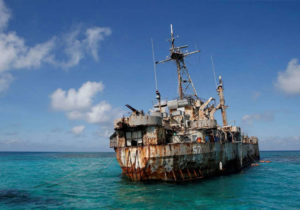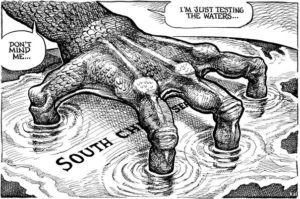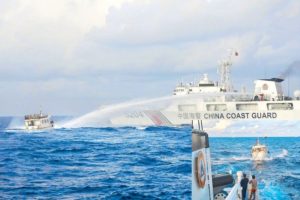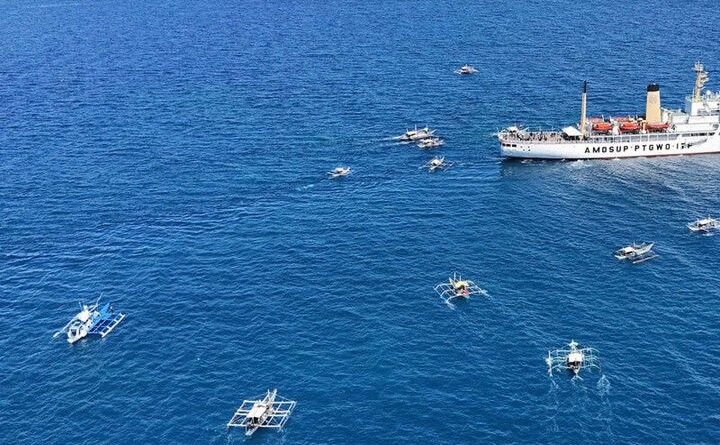HEADLINE-ASIA GEOPOLITICS | MANILA- China warns Philippines on sea tension: Act with caution
.
China provocations worrisome – Marcos

MANILA, Philippines — China has warned the Philippines to “act with caution” in disputed waters as ties between the two countries are now “facing serious difficulties.”
The warning was given to Foreign Affairs Secretary Enrique Manalo during a telephone conversation by his Chinese counterpart Wang Yi who reportedly said bilateral relations now stand “at a crossroads.”
In a Xinhua report shared by Chinese Ambassador Huang Xilian on his Facebook account, Wang blamed the Philippines for changing its policies.
Wang also admonished Manila for reneging on its supposed promises, and for constantly provoking trouble and undermining China’s “legitimate” and “lawful” rights in the South China Sea.

“China-Philippines relations are at a crossroads. Faced with the choice of where to go, the Philippines must act with caution,” a readout stated.
The Xinhua report said Wang “warned that if the Philippine side misjudges the situation, goes its own way, or even colludes with ill-intentioned external forces to continue to stir up troubles, China will defend its rights in accordance with law and respond resolutely.”
The Philippines, Wang said, should return to the “right path” as soon as possible, while properly handling and managing the current maritime situation as a top priority.
Huang claimed the phone conversation was at Manalo’s instance, but unnamed diplomatic sources insisted that it was the Chinese side that first called.
“Proper management of current maritime situation serves as top priority. Hope this candid exchange of views will help manage maritime situation and improve bilateral relations,” Huang said.

“We had a frank and candid exchange and ended our call with a clearer understanding of our respective positions on a number of issues. We both noted the importance of dialogue in addressing these issues,” Manalo said in a statement.
The international community condemned China’s dangerous and destabilizing conduct in the South China Sea and called out Beijing for interfering in lawful Philippine maritime operations.
Territorial disputes have grown tenser as China seeks to cement its territorial claims in defiance of the US and its allies, the Philippines, Japan, South Korea and close partner Taiwan, which China claims as a breakaway province and threatens to annex by military force.
Armed Forces of the Philippines chief Romeo Brawner Jr. was aboard a supply boat when it was blasted with water cannon, surrounded and bumped by Chinese coast guard ships earlier this month near Ayungin Shoal.
China, meanwhile, accused the US of encouraging the Philippines, its treaty ally, to provoke China for its own purposes, though it provided no direct evidence.
Along with using water cannons, Philippines officials said that Chinese coast guard ships used a military-grade laser that caused Filipino crewmembers temporary blindness and engaged in dangerous blocking and shadowing maneuvers that caused minor collisions.

Washington is bound by a 1951 treaty to help defend the Philippines from attack. That pledge has grown stronger with the election of President Marcos who recently said that the situation in the South China Sea “has become more dire” as China expands its presence.
China has shown interest in atolls and shoals that are “closer and closer” to the coast of the Philippines, with the nearest atoll about 111 kilometers away, Marcos said during a visit to Hawaii – a US state – last month.


 Memento Maxima Digital Marketing
Memento Maxima Digital Marketing







